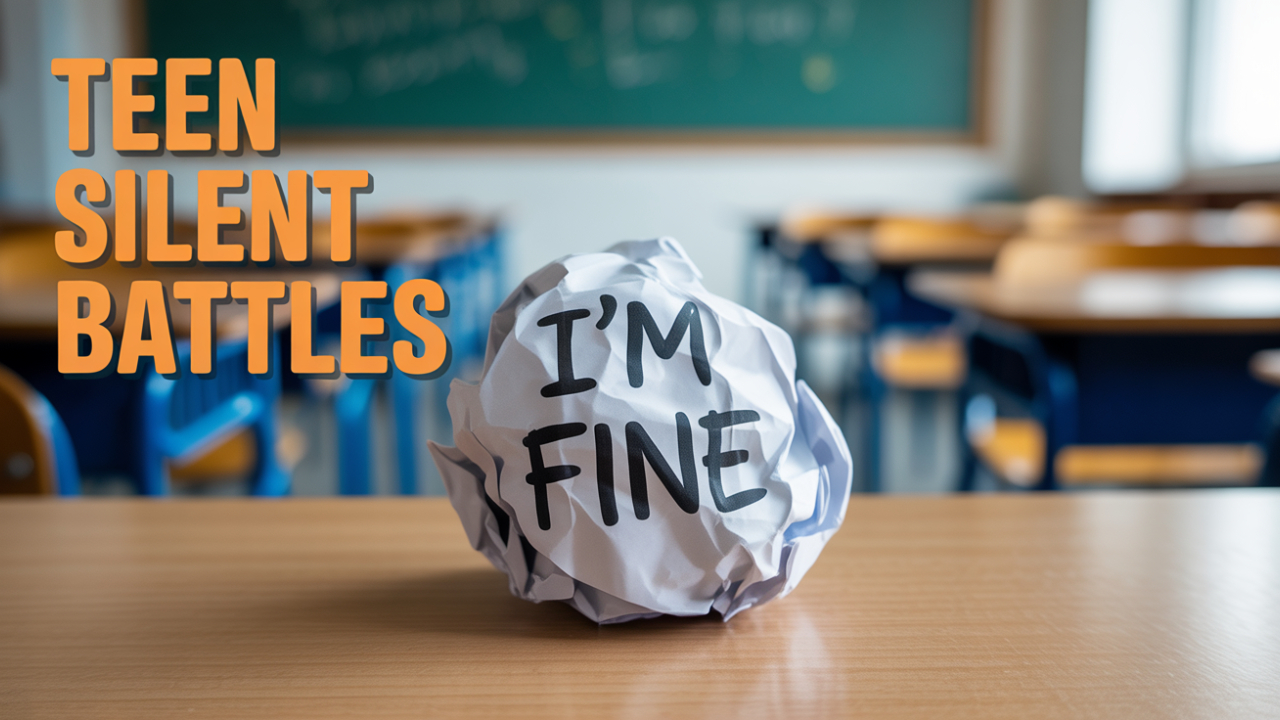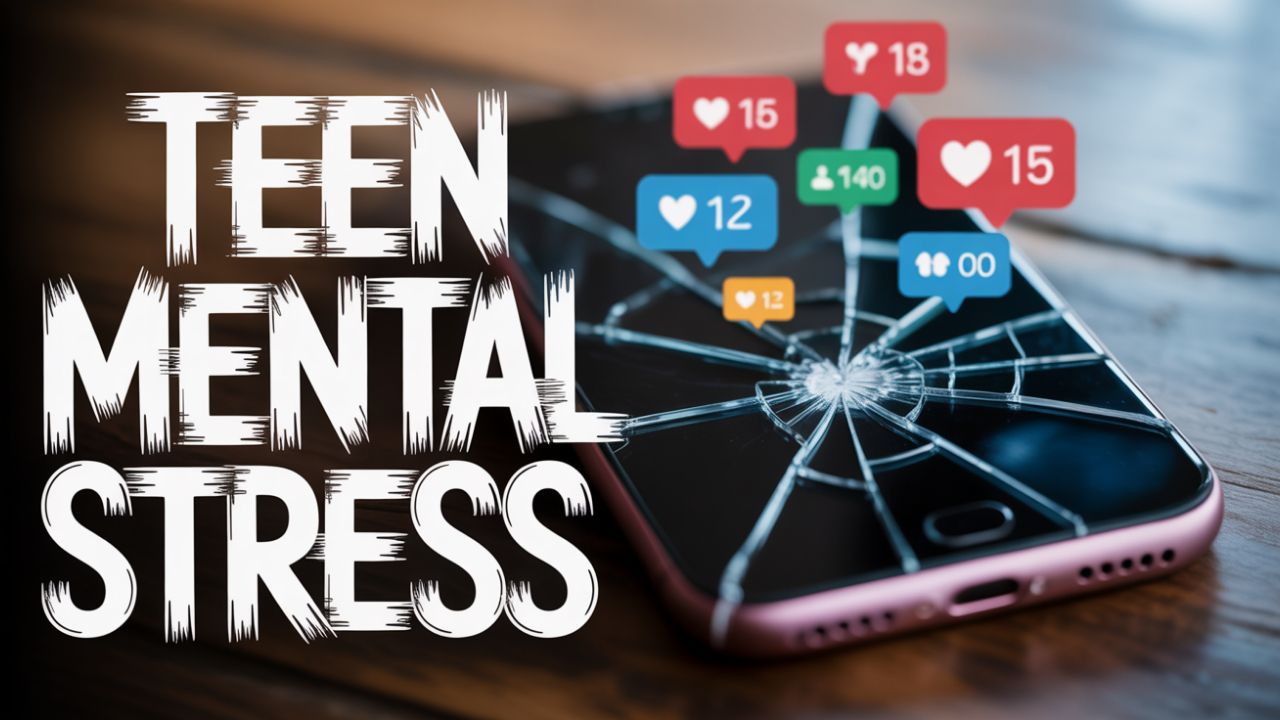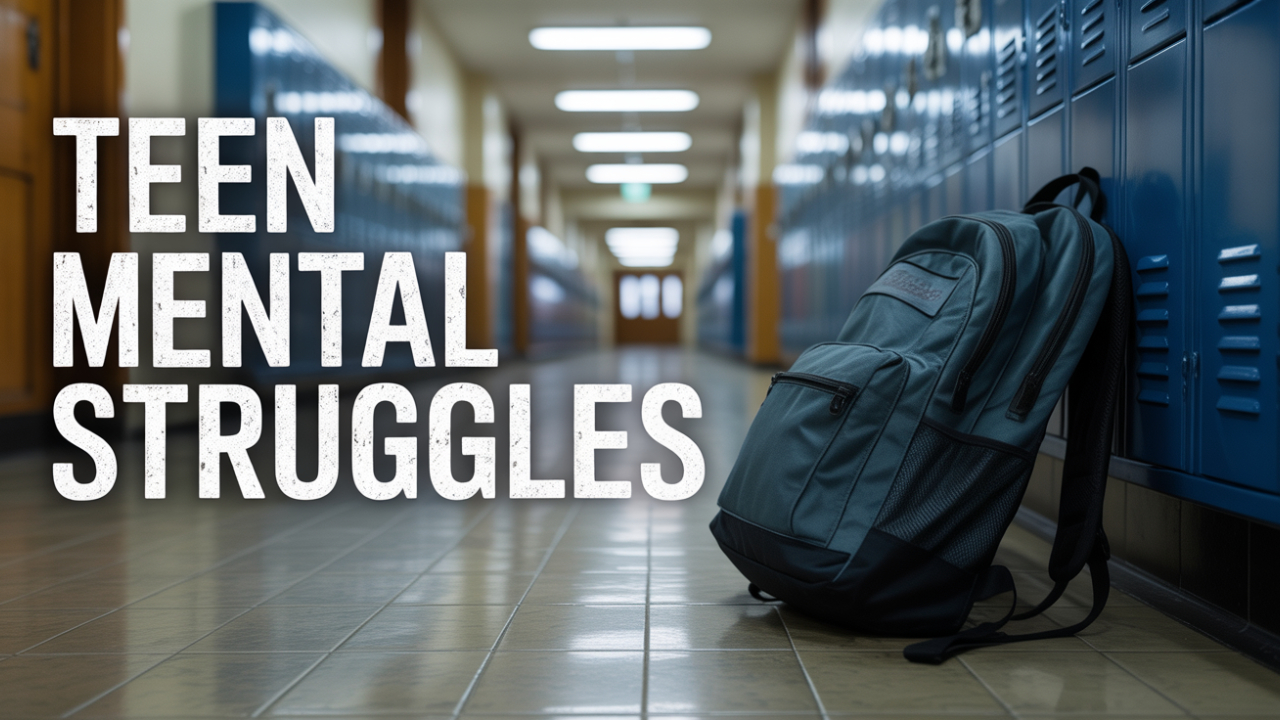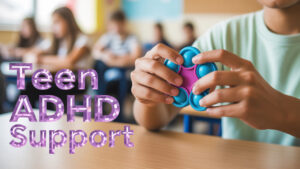How Does Mental Health Affect Teens
Mental health plays a major role in how teenagers think, feel, and act. It affects their relationships, school performance, and daily life. Good mental health helps teens handle challenges and enjoy positive experiences. Poor mental health can make everyday tasks more difficult and create lasting problems if not addressed early. Understanding how mental health affects teens is important for parents, educators, and the teens themselves.
What Mental Health Means for Teens
Mental health is the state of a person’s emotional, psychological, and social well-being. For teens, it affects how they handle stress, relate to others, and make decisions. Healthy mental function allows teens to manage emotions, build healthy relationships, and adapt to changes. When mental health suffers, teens may struggle in these areas.
Common Mental Health Issues in Teens
Many mental health disorders start during adolescence. Early signs can be missed if they are mistaken for normal teenage behavior. Some common conditions in teens include:
Anxiety disorders – Persistent worry, fear, and nervousness that interfere with daily life.
Depression – Ongoing sadness, loss of interest in activities, and changes in sleep or appetite.
Attention Deficit Hyperactivity Disorder (ADHD) – Problems with attention, focus, and impulse control.
Eating disorders – Unhealthy eating habits, distorted body image, and dangerous weight control behaviors.
Post-Traumatic Stress Disorder (PTSD) – Emotional distress after experiencing or witnessing trauma.
Substance use disorders – Misuse of drugs or alcohol that impacts health and behavior.
Identifying these conditions early can help prevent long-term damage.

How Mental Health Affects School Performance
Teens with poor mental health often have trouble in school. Anxiety can make it hard to focus in class. Depression can lower energy and motivation, leading to missed assignments. Teens may avoid school due to bullying or social anxiety. Learning difficulties can be linked to untreated mental health disorders. Teachers may notice declining grades, lack of participation, or sudden changes in behavior. Addressing mental health concerns can improve academic outcomes.
Social Impact of Mental Health in Teens
Mental health also affects a teen’s relationships. Teens with depression or anxiety may isolate themselves from friends and family. Some may act out in anger or frustration, causing conflict. Others may struggle to trust people or maintain close connections. Peer pressure can increase stress and lead to risky behaviors such as substance abuse. Supportive friendships and family relationships can help protect against these problems.
Emotional Effects of Mental Health Challenges
Poor mental health can lead to intense emotional struggles. Teens may experience mood swings, irritability, or feelings of hopelessness. They may feel overwhelmed by small problems. Emotional distress can lead to self-harm or suicidal thoughts if not addressed. Learning coping skills through therapy or counseling can help teens manage emotions in healthier ways.

Physical Health Connection
Mental health affects physical health in teens. Chronic stress can weaken the immune system, cause headaches, and disturb sleep patterns. Anxiety and depression can lead to changes in appetite, which may cause weight loss or gain. Some teens may experience stomach problems, fatigue, or other physical symptoms without realizing they are connected to mental health.
Risk Factors for Mental Health Problems in Teens
Certain factors increase the chance of mental health issues in teens. These include:
Family history of mental illness
Exposure to trauma or abuse
Bullying or social rejection
Chronic illness or disability
Substance use
Academic pressure or high expectations
Family conflict or divorce
Understanding these risks can help parents and caregivers provide early support.
Warning Signs of Mental Health Problems in Teens
Recognizing warning signs is essential. Changes in behavior, mood, or daily habits may signal a problem. Signs to watch for include:
Withdrawal from friends and activities
Significant changes in sleep or appetite
Decline in school performance
Frequent headaches or stomachaches
Irritability or extreme mood swings
Talking about death or suicide
Loss of interest in hobbies or sports
Use of alcohol or drugs
If a teen shows several of these signs, a mental health professional should be consulted.
Importance of Early Intervention
The earlier a teen receives help, the better the outcome. Early intervention can prevent problems from becoming severe. Therapy, counseling, and support from family and teachers can make a big difference. In some cases, medication may be part of the treatment plan. Early help can improve school performance, social life, and overall well-being.
Healthy Coping Strategies for Teens
Learning healthy ways to handle stress is key to good mental health. Teens can benefit from:
Regular physical activity
A consistent sleep schedule
Balanced meals and proper hydration
Limiting screen time and social media use
Talking openly about feelings with trusted adults
Practicing relaxation techniques such as deep breathing or meditation
Engaging in hobbies or creative activities
Seeking professional help when needed
These strategies build resilience and make it easier to manage challenges.

How Parents and Caregivers Can Help
Parents and caregivers play a major role in supporting a teen’s mental health. Steps they can take include:
Listening without judgment
Encouraging open communication
Watching for changes in mood or behavior
Helping teens balance school, activities, and rest
Supporting healthy friendships and activities
Being a positive role model for coping with stress
Connecting teens with professional help when necessary
A supportive home environment helps teens feel safe and valued.
Role of Schools in Teen Mental Health
Schools can help by providing mental health education, counseling services, and a safe environment. Teachers and school counselors can identify students who may be struggling and connect them to resources. Anti-bullying programs and stress management workshops can also make a difference.
Professional Treatment for Teen Mental Health
Treatment depends on the type and severity of the problem. Options may include:
Therapy – Individual, group, or family counseling.
Cognitive Behavioral Therapy (CBT) – Helps teens change negative thought patterns.
Dialectical Behavior Therapy (DBT) – Teaches emotional regulation and coping skills.
Medication – Used when necessary to manage symptoms.
Support groups – Provide connection with peers facing similar challenges.
At Adolescent Mental Health in Orange County, we provide specialized care for teens, helping them build healthy coping skills and regain balance in their lives.
Long-Term Outlook for Teens with Mental Health Support
With the right help, most teens with mental health challenges can recover and thrive. Early treatment, supportive relationships, and healthy coping strategies give them the tools to manage stress and prevent future problems. Ignoring mental health issues can lead to difficulties in adulthood, so addressing them during the teen years is essential.
Final Thoughts
Mental health has a major impact on teens’ lives. It influences their thoughts, emotions, behaviors, and relationships. Addressing mental health early can improve school performance, build stronger social connections, and protect overall well-being. Parents, schools, and communities all have a role in supporting teens. At Adolescent Mental Health, we are dedicated to helping teenagers develop the skills they need to face challenges and build a healthy future.
Frequently Asked Questions
1. What are the most common mental health issues in teens?
The most common mental health issues in teens include anxiety disorders, depression, ADHD, eating disorders, and substance use disorders. Some teens may also experience mood disorders, PTSD, or self-harm behaviors. These conditions can affect emotions, school performance, and relationships if not addressed early.
2. How can parents tell if their teen is struggling with mental health?
Parents should watch for changes in mood, sleep, appetite, school performance, and social behavior. Withdrawal from friends, loss of interest in hobbies, irritability, frequent headaches, and talking about hopelessness can be warning signs. If these changes last more than a couple of weeks, a mental health professional should be consulted.
3. Can mental health problems in teens improve without treatment?
Some mild mental health challenges may improve with lifestyle changes and strong support systems. However, many conditions require professional treatment to prevent them from worsening. Early therapy, counseling, or medical support can significantly improve long-term outcomes for teens.
4. What is the best way to support a teen’s mental health?
Parents and caregivers can support a teen’s mental health by maintaining open communication, encouraging healthy routines, and offering emotional support without judgment. Helping teens access professional care when needed is one of the most effective ways to ensure they get the right tools to cope and thrive.









